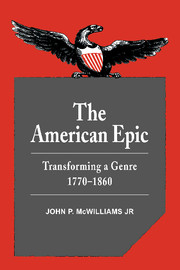3 - Freedom's Fools
Published online by Cambridge University Press: 22 March 2010
Summary
Until the very end of the eighteenth century, the newly popular genre called mock-heroic or mock-epic was regarded as the inverse, not the opposite, of the epic. Unlike the travesty, the mock-epic was not intended to mock the epic, but to ridicule human pretense by dressing up “trivial causes” in the full panoply of epic conventions. The mockepic could be understood and appreciated only through the epic. Mockheroics had appeared, not when writers believed the epic to be absurd, but when they sought to expose the folly of heroic pretense among combatants – or writers – who were not worthy of the grandest of literary forms. The mock-epic thus followed the epic in time, yet was its dependent and complement. It surfaced when the epic was still regarded with high admiration, but when its grand subjects seemed to be above smallminded contemporaries.
Epic and mock-epic were thought to have had one origin, even one author. Homer and Virgil, it was assumed, had successfully sung “The Battle of the Frogs and Mice” and “The Gnat” because they had also sung Achilles' wrath and Aeneas' pietas. England's great Moderns seemed, however, to have ominously reversed the priorities of their Ancient models. “MacFlecknoe” and “Absalom and Achitophel” had established the English mock-epic, yet Dryden's great heroic work remained his translation of Virgil, whereas his cherished project for his own epic on King Arthur or the Black Prince remained unwritten. Perhaps Pope's Iliad truly had, as Johnson claimed, “tuned the English tongue,” but Pope's own creative achievements in heroic poetry were “The Rape of the Lock” and The Dunciad.
- Type
- Chapter
- Information
- The American EpicTransforming a Genre, 1770–1860, pp. 67 - 93Publisher: Cambridge University PressPrint publication year: 1989



